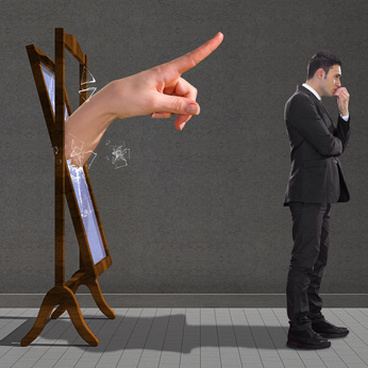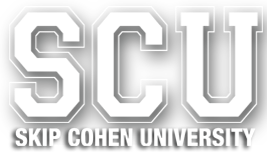 © crescendo © crescendo Intro by Skip Cohen I've written a lot about the importance of friendships in this industry. Building those relationships is one of the top reasons to attend every possible convention, workshop and local meeting of photographers you can cram into your schedule. Well, meet somebody who's become a very good friend, Dr. Joan Whitman Hoff. She's a college philosophy professor, but more important to all of us; she's a photographer, along with her husband Stephen and son Charles. I had a chance to catch up with them in Atlanta a couple of weeks ago. This particular post is destined to become one of my favorites. Joan addresses the challenge we all share in analyzing our business - analyzing ourselves! Over the years, I've heard so many artists blame the challenges in building their business on the economy, competitors, the absence of cash, etc. The list of reasons/excuses are endless and always somewhat valid, but rarely does anybody take a serious look in the mirror. Rarely does anybody ask, "What's my image in the community?" Sheila and I have been together as a couple for almost eight years and married for almost six. With every project I've ever questioned about getting involved with, she's always reminded me of one thing, Shakespeare's line of "To thine own self be true." There are ten questions below that Joan has shared to help us all look at ourselves just as much as we look at our customers. She couldn't be more timely in this guest post. For most of you, it's the slow season, and you've got time to think about the answer to each question, and even better, you've got time to modify the process. Being a great photographer or business owner of any kind isn't just about your product, but about your reputation and how you're perceived. Success is only 20% ability and 80% motivation, passion and relationship building! by Joan Whitman Hoff
I have read, and heard, many lessons on the importance of knowing our clients, or our ideal clients, and there is no doubt it is important. Knowing our clients will help to identify their needs, wants, etc., and help us to offer better service to them as individuals. Likewise, as I noted in an earlier post, serving clients entails good ethics, which usually results in good business for us, and good (business) relationships. It is important, however, to keep in mind relationships entail our knowing ourselves. This requires us to be aware of ourselves and to be good critical thinkers. This might sound rather simple, but sometimes we are unaware of the extent to which poor critical thinking undermines relationships and how it undercuts our awareness of how we might truly be treating others, and ourselves. As Skip Cohen has noted, trust is most important in relationships. Trust requires our distinguishing between feelings and thoughts. Trust requires truth and honesty. Though both feelings and thoughts are important in business, and life, they require continual monitoring and assessment. Just as we grow and learn throughout our lives, we need to actively decide who we want to be and what feelings, thoughts, and actions we ‘own’ and how they play a role in our relationships. We ‘try on ideas of others’ to see if they ‘fit us’. What ‘fits’ we keep; what doesn’t, we can ‘delete’. The continual, dynamic process of self-development requires self-awareness. (See George Herbert Mead.) This helps build our integrity. Here are a few questions to reflect upon in this process.
These are just a few of the critical questions at the foundation of self-reflection that can aid in the process of knowing ourselves and our clients, and they can help us to foster better relationships with the people around us, personal and professional. If we want other to trust us, we have to trust, and be able to depend on, ourselves. George Herbert Mead. “The Social Self” in Philosophies for Living; Robert M. Timko and Joan Whitman Hoff, eds. (Pearson Ed. 2001)
0 Comments
Your comment will be posted after it is approved.
Leave a Reply. |
Archives
November 2016
|
© 2019 Skip Cohen University

 RSS Feed
RSS Feed